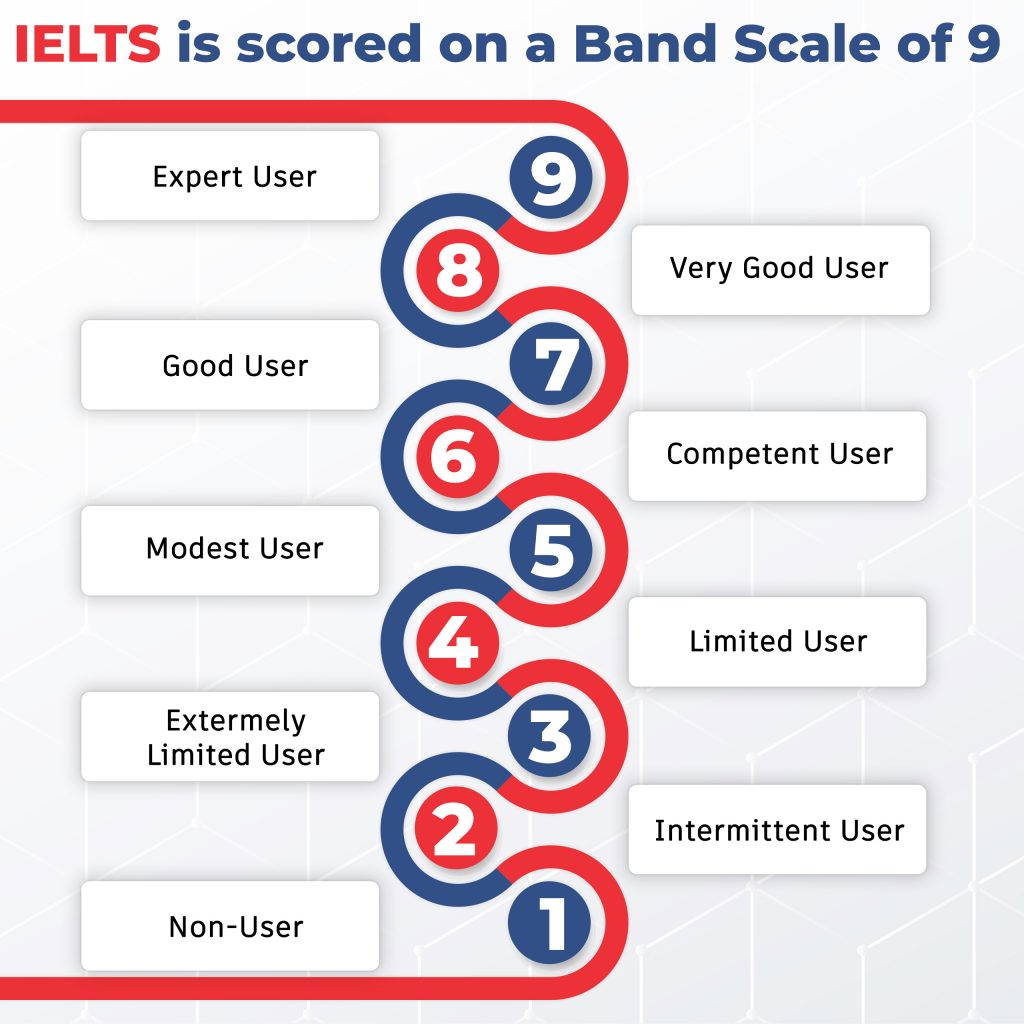We’ll go through the IELTS, its different versions (Academic/General Training), and the one you’ll be required to take as a graduate student in this post. We’ll go through the exam methodology, scoring patterns, and the benefits of a high IELTS band as well.
What is the IELTS test and how does it work?
With over three million applicants taking the test each year, the International English Language Testing System, or IELTS, is one of the most well recognised standardised English language competency assessments in the world. The exam, which is administered in collaboration with the British Council, is needed of non-native English speakers (those whose mother tongue is not English) who desire to study or work in English-speaking nations such as the United Kingdom, the United States, Canada, Australia, and New Zealand.
The ability of the candidate to communicate in English is tested in four areas: speaking, listening, reading, and writing. The applicant is given a band on a scale of 0-9 for each of the four modules based on his or her score. An average of the scores from all four components will be used to determine the overall band score. Universities that need an IELTS score make their criteria apparent on the official website, so you know precisely what you’re striving for. Universities often need an average band of 6.5 or above, with no less than a 6 on each of the four modules. However, criteria may differ from one university to the next.



